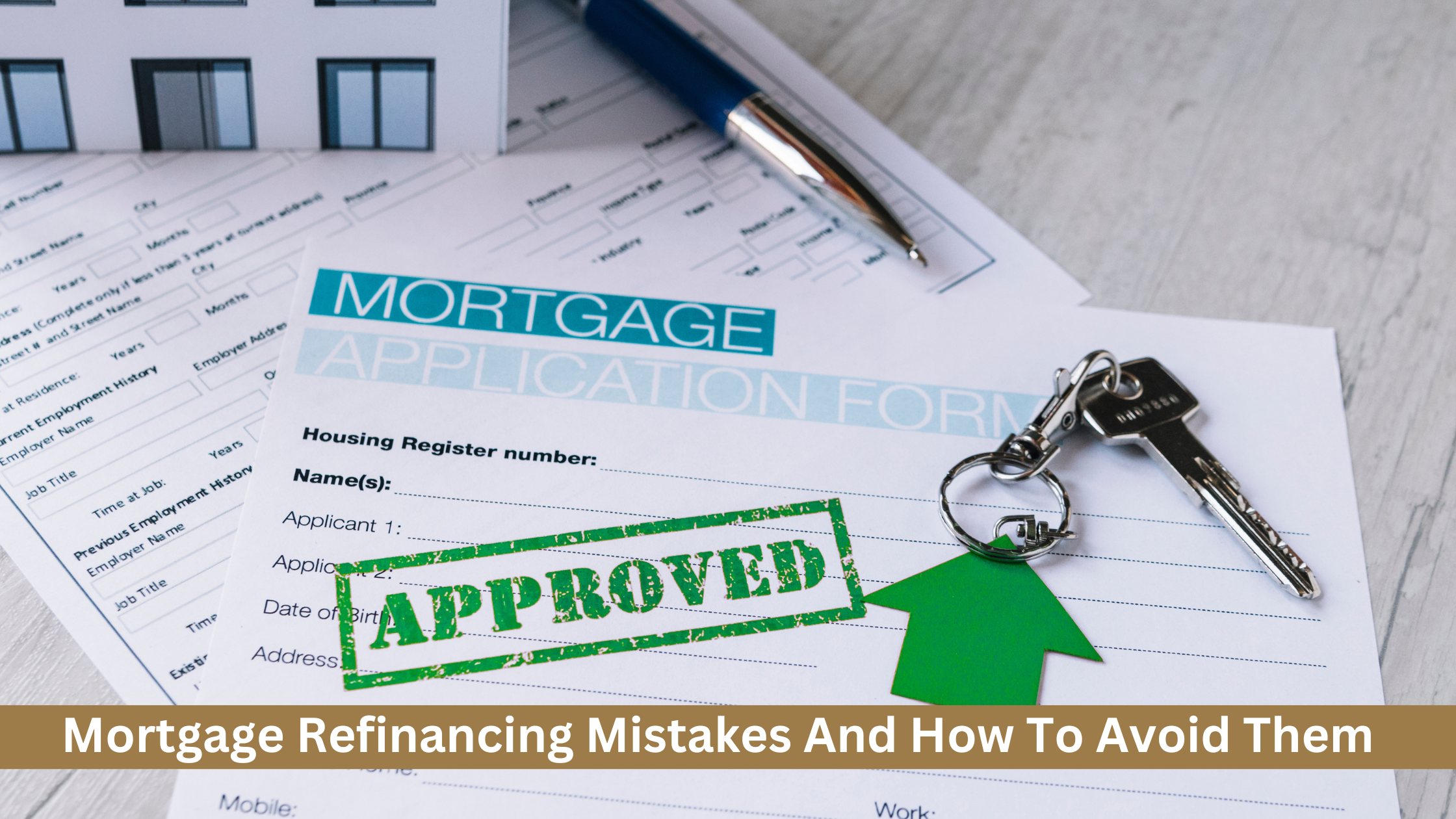When employed judiciously, private mortgage refinance can serve as a potent financial tool, granting homeowners access to reduced interest rates, decreased monthly payments, and the opportunity to harness their home’s equity for diverse financial objectives. Nevertheless, this is a multifaceted process fraught with potential pitfalls that may exert enduring impacts on a homeowner’s financial stability. In this exploration of “Avoiding Mortgage Refinancing Errors,” we will delve into the common challenges individuals encounter when refinancing their mortgages and provide valuable insights into effective strategies for sidestepping these pitfalls. For homeowners aspiring to make prudent, financially rewarding decisions within the realm of mortgage refinancing, a comprehensive understanding of these errors and the proactive measures necessary is of paramount importance.
Lack of Financial Situation Assessment
Not fully assessing your financial condition is one of the worst blunders you can make when refinancing your private mortgage Canada. Understanding your present financial situation is crucial since it will affect how successfully you may refinance your home. Owners should think about the following things before refinancing:
Credit score:
Low credit scores could result in higher interest rates or perhaps the refinancing application being denied. It is essential to examine your credit score and, if required, enhance it.
Job Stability:
The approval of a mortgage is influenced by job stability. Your chances of getting approved for a refinance can be impacted by frequent job changes or unemployment.
Debt-to-Income Ratio:
Lenders assess your capacity to manage additional debt, and elevated debt-to-income ratios may pose refinancing challenges.
Home Equity:
Your available terms and refinancing choices are contingent on the amount of equity you’ve built in your home.
Choosing a lender without researching options
Not looking around for loans is a typical blunder. When considering refinancing, many homeowners choose the first lender they speak with or continue with their current lender. However, not all lenders provide the same conditions, and interest rates can differ greatly. To prevent making this error:
Gather Quotes from Several Lenders:
Spend some time gathering quotes from a number of lenders, including credit unions, banks, and online lenders.
Rate and Fee Comparison:
Examine the interest rates, charges, and closing costs that various lenders are offering. The total cost of your mortgage might be significantly impacted by even minor variations in these variables.
Examine several Loan Programs:
To locate the loan program that best meets your needs, compare several loan programs, such as fixed-rate mortgages, adjustable-rate mortgages, and cash-out refinances.
Leaving out closing costs
The effect of closing fees is one of the mortgage refinancing errors that homeowners frequently make. Fees for appraisals, credit checks, loan origination, and other costs are associated with refinancing. You must take these expenses into account when making your choice because they may negate any possible savings from a lower interest rate. To prevent making this error:
Request a Loan Estimate:
Lenders must offer a Loan Estimate that includes an estimate of the closing expenses. Examine this paper thoroughly, and if there are any fees you don’t understand, ask questions.
Consider a No-Closing-Cost Refinance:
Take into account a no-closing-cost refinance; nevertheless, you should be aware that these options could result in slightly higher interest rates.
Calculate Your Break-Even Point:
Determine the length of time it will take to recoup the closing expenses from the monthly savings on your mortgage payment by computing your break-even point. Refinancing might not be a smart move if you want to sell your house before you reach this break-even point.
Overlooking the Long-Term Consequences
One of the most significant errors involves fixating solely on the immediate advantages of refinancing without considering the long-term ramifications. Refinancing can wield substantial influence over the overall cost and duration of your mortgage. Several factors deserve attention:
Loan Term:
The decision to either shorten or lengthen your loan term can significantly affect the total interest payments over the loan’s lifespan. Shorter terms mean higher monthly payments but less overall interest, while longer terms result in lower monthly payments but greater interest expenses over time.
Cash-Out Refinancing:
Accessing home equity through cash-out refinancing can supply instant funds, but it simultaneously increases your mortgage balance and extends the repayment period.
Adjustable-Rate Mortgages:
Opting for an adjustable-rate mortgage might initially offer lower interest rates but exposes you to the potential of future rate hikes.
Neglecting Future Financial Objectives
A significant error is the failure to harmonize your mortgage refinancing with your future financial aspirations. Many homeowners focus exclusively on reducing their monthly payments, overlooking broader goals like retirement planning, funding education, or debt reduction. To steer clear of this mistake:
Clarify Your Objectives:
Clearly define your financial goals, spanning both immediate and long-term, and assess how mortgage refinancing can either support or hinder these aims.
Engage a Financial Advisor:
Seek counsel from a financial advisor who can help you synchronize your mortgage refinancing with your comprehensive financial strategy.
Consider Tax Implications:
Comprehend how factors like mortgage interest deductions and other tax-related considerations may influence your overall financial position.
Conclusion
As a result, mortgage refinancing can be a useful tool for homeowners, providing chances to get mortgage lower interest rates, lower monthly payments, and accomplish a variety of financial objectives. The procedure, meanwhile, is full with potential dangers, and making mistakes might have a long-lasting negative impact on your financial situation. It’s essential to carefully review your financial status, look around for lenders, take closing expenses into account, and consider the long-term and goal-oriented ramifications of your refinancing options if you want to avoid making these mistakes. Homeowners can maximize the advantages and reduce the hazards of mortgage refinancing by applying informed and strategic thinking, thereby securing a more secure financial future.
FAQs
1. What errors do people make the most frequently when refinancing their mortgages?
Common errors include failing to evaluate their financial condition, failing to compare lenders, ignoring closing fees, ignoring long-term effects, and failing to take their future financial goals into account.
2. How can I keep from committing these errors?
To prevent making these errors, it’s crucial to carefully analyze your financial status, look around for several lenders, take closing expenses into account, review the long-term effects of your refinancing options, and match your refinancing with your long-term financial objectives.
3. How can I locate the ideal lender to meet my demands for mortgage refinancing?
Research several lenders, such as credit unions, banks, and internet lenders, and request quotes to determine which one is the best. To make an educated choice, compare interest rates, charges, and closing costs.
4. How can I take my long-term financial objectives into account when I refinance my mortgage?
Think about how various loan durations, types, and refinancing options fit with your long-term financial goals, such as debt reduction, retirement planning, and paying for education. Making wise judgments might also be aided by seeking financial advice.
5. Should you take tax consequences into account while refinancing a mortgage?
There may be tax repercussions, including the ability to deduct mortgage interest. Understanding how these tax issues could impact your overall financial situation is crucial, and seeking the advice of a tax expert can be useful.



